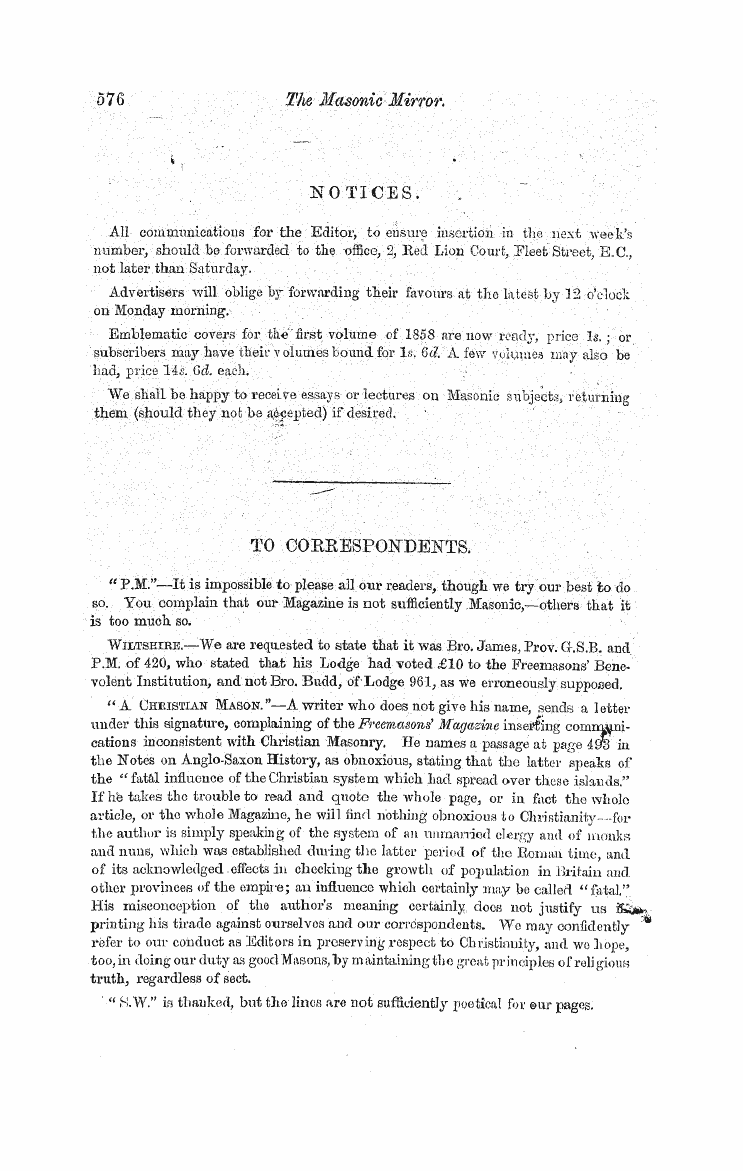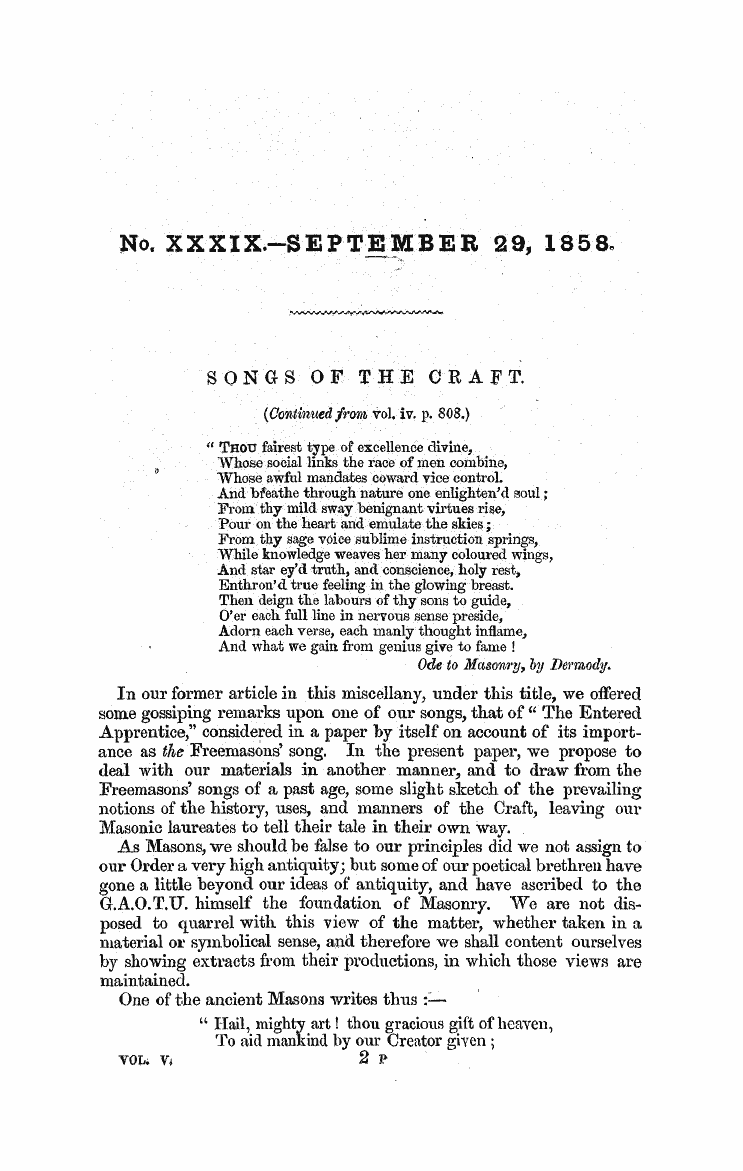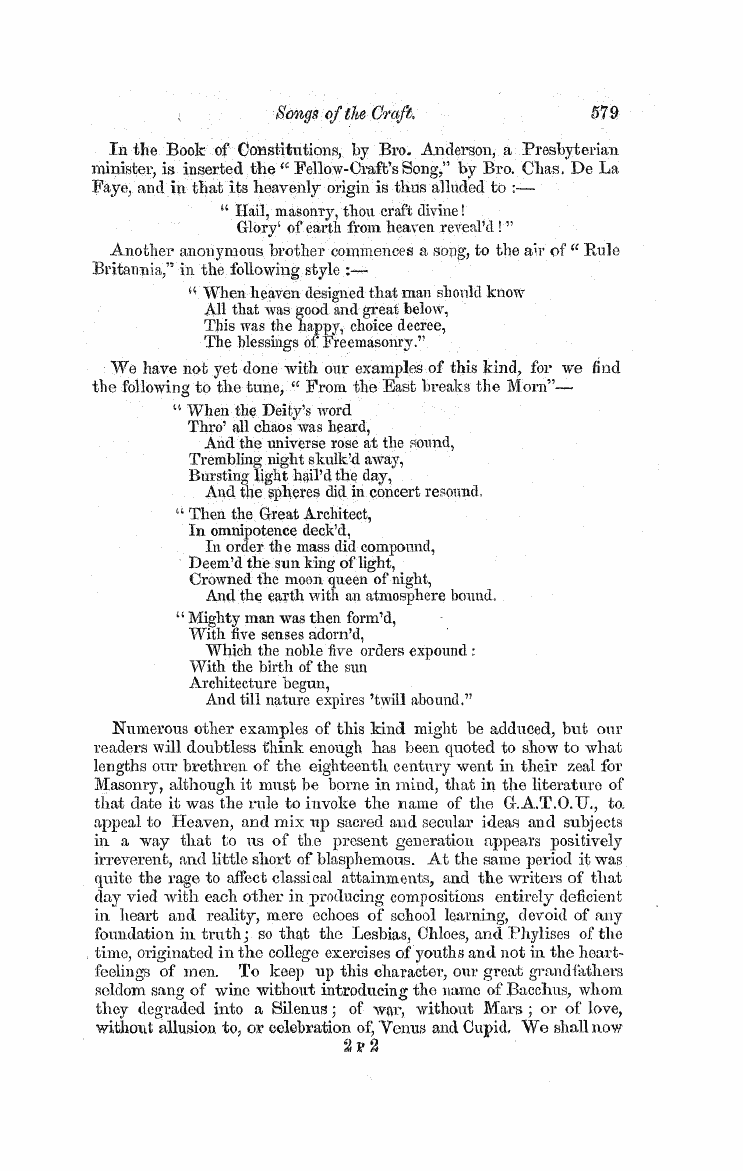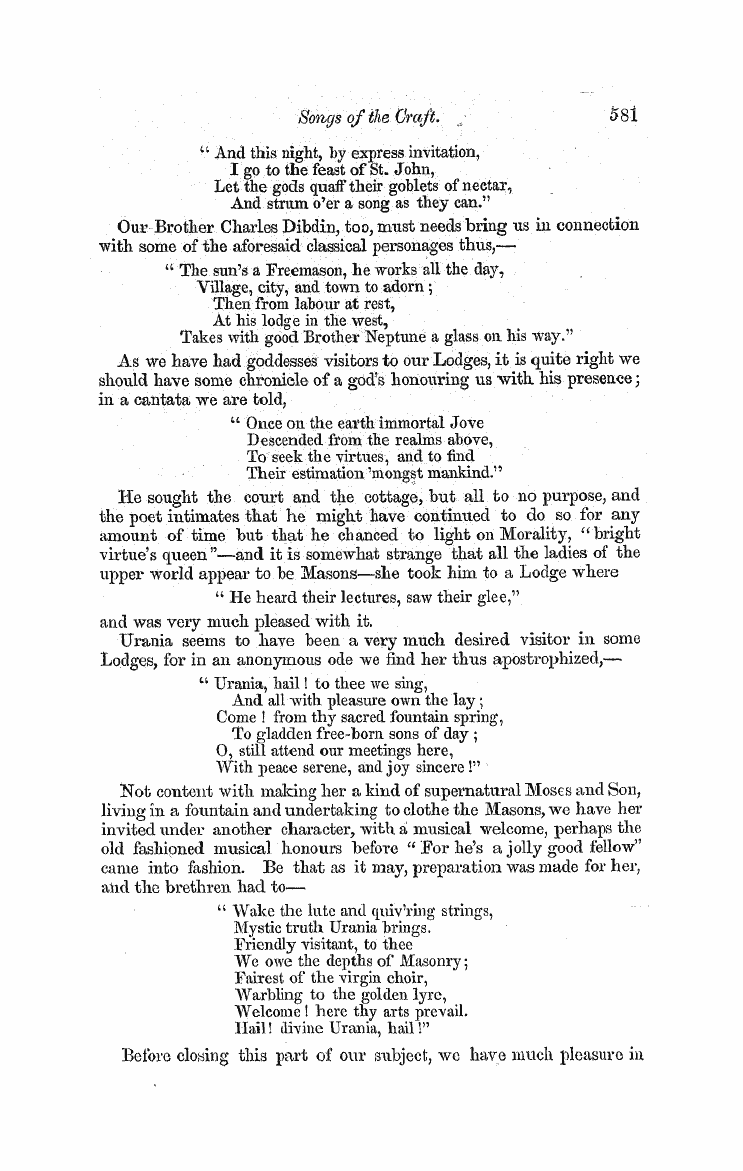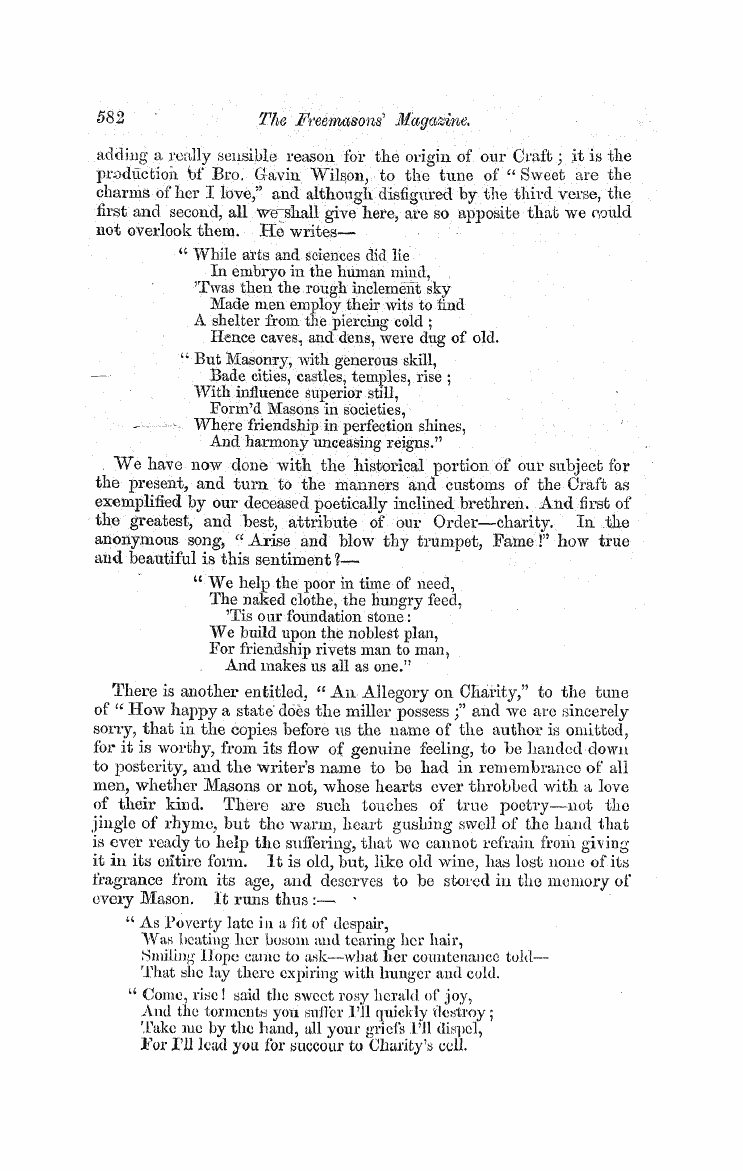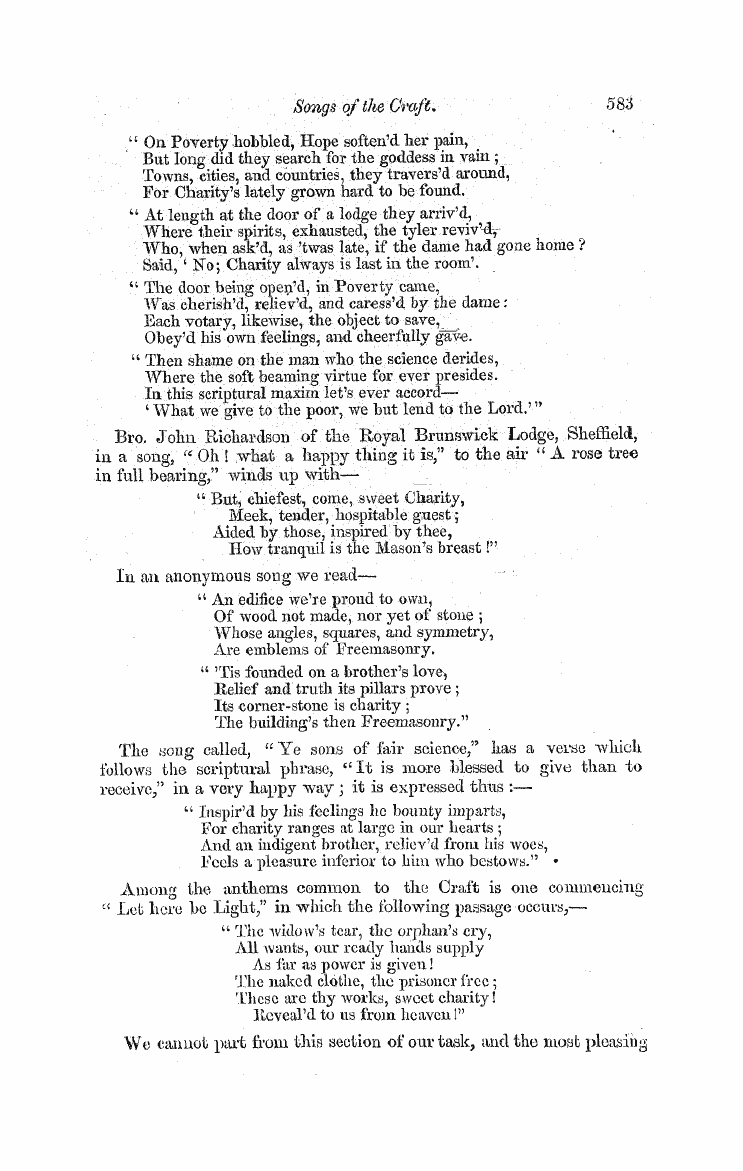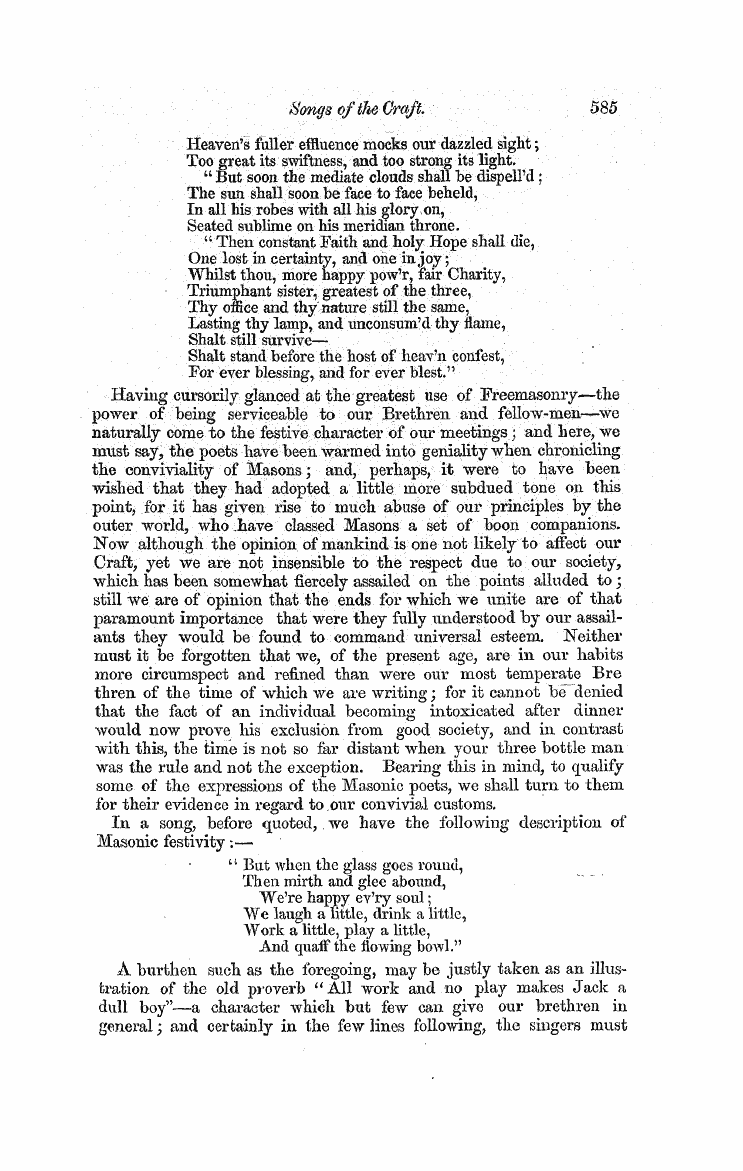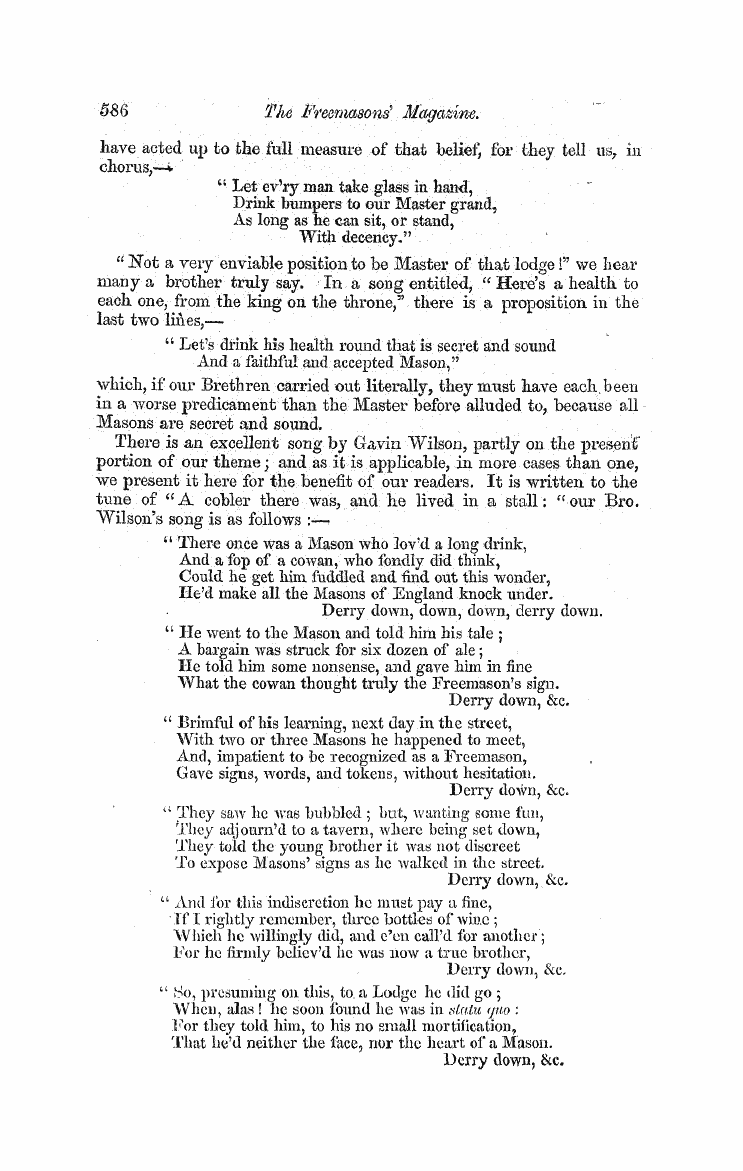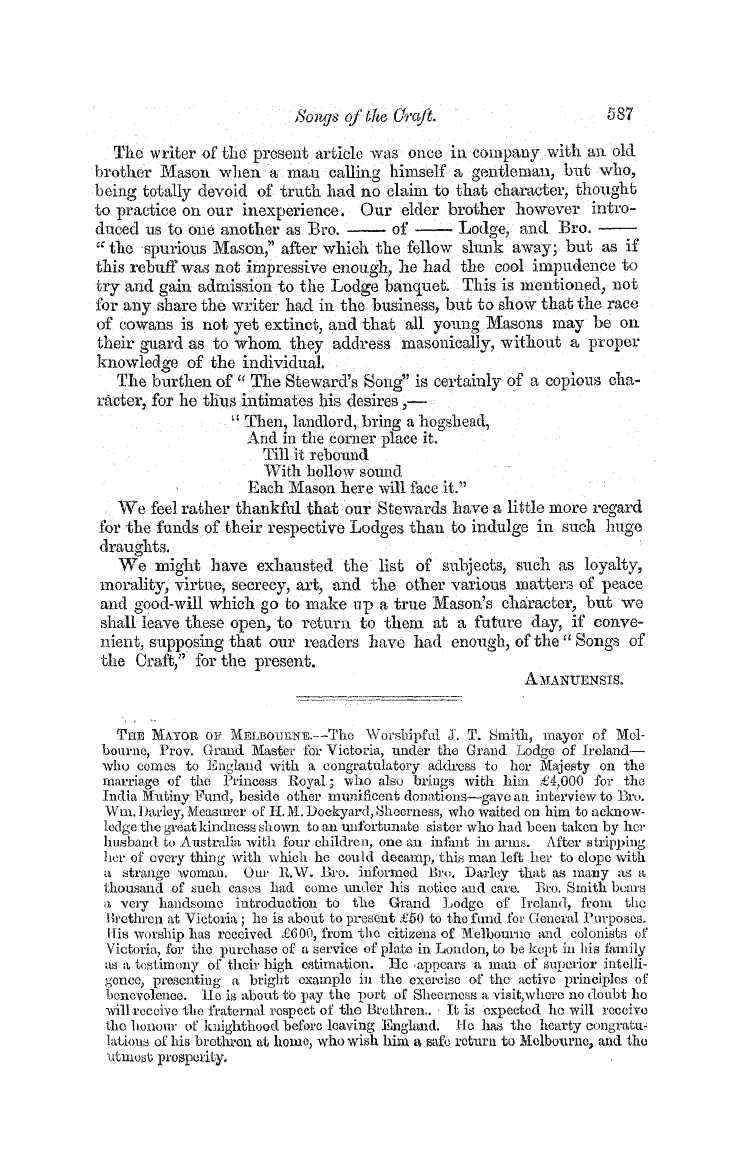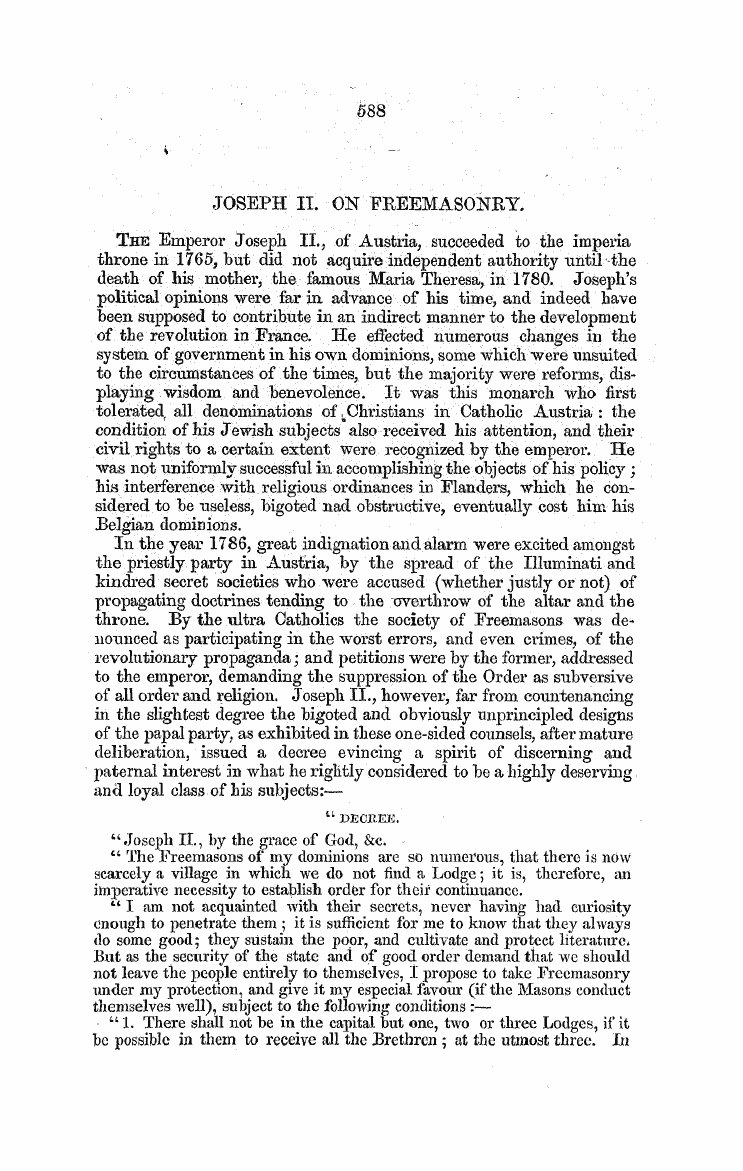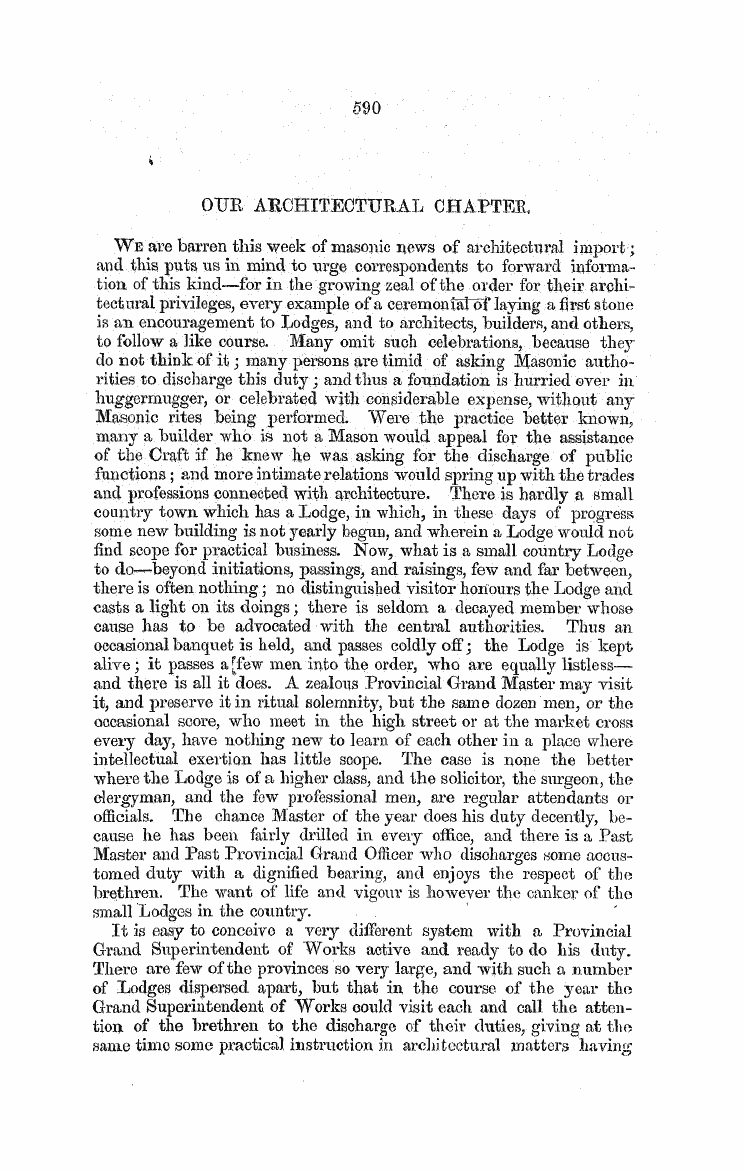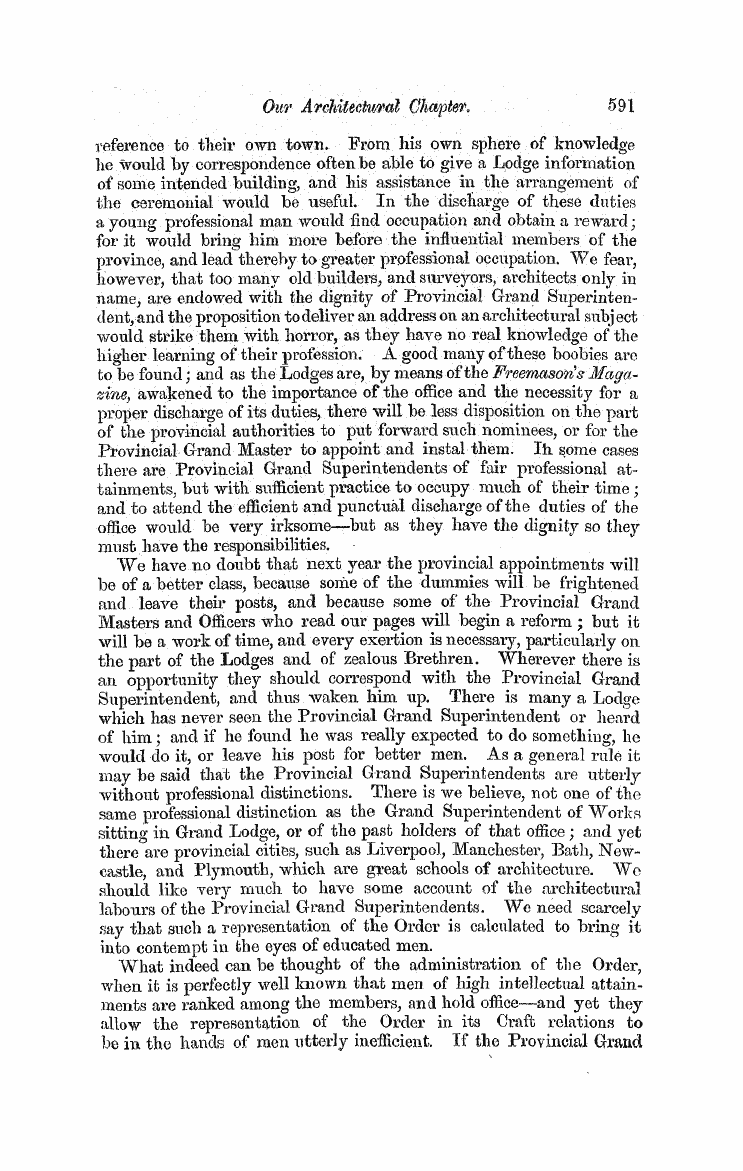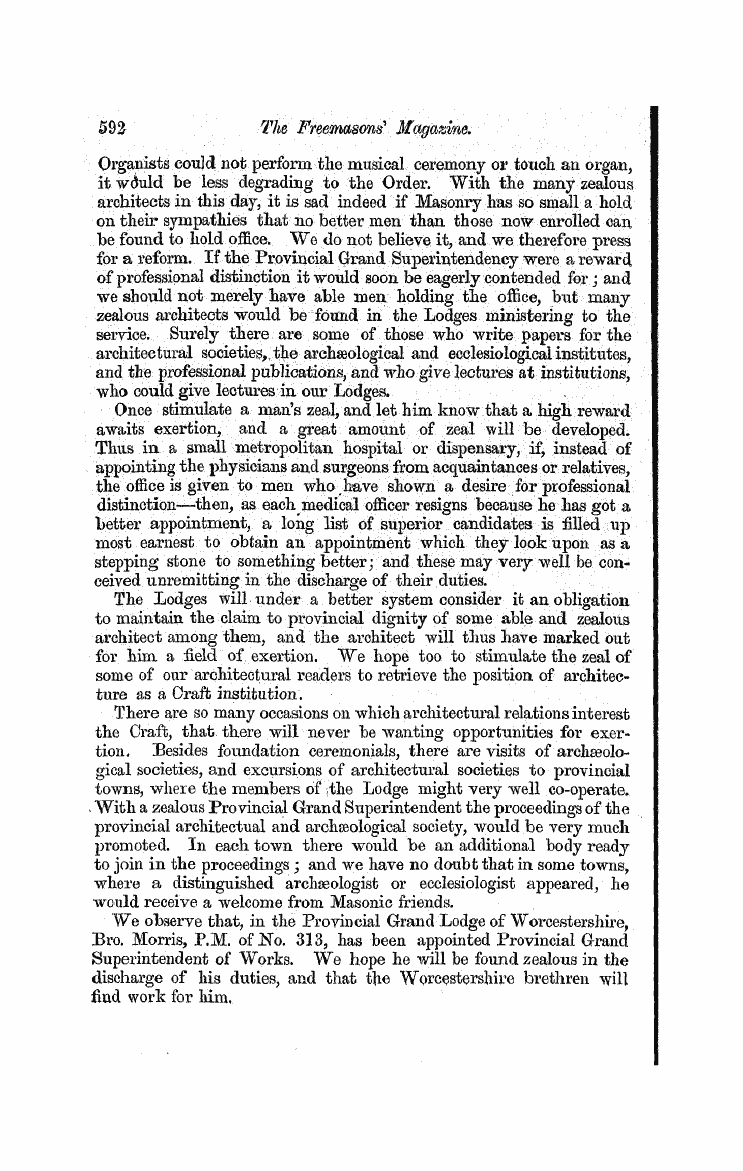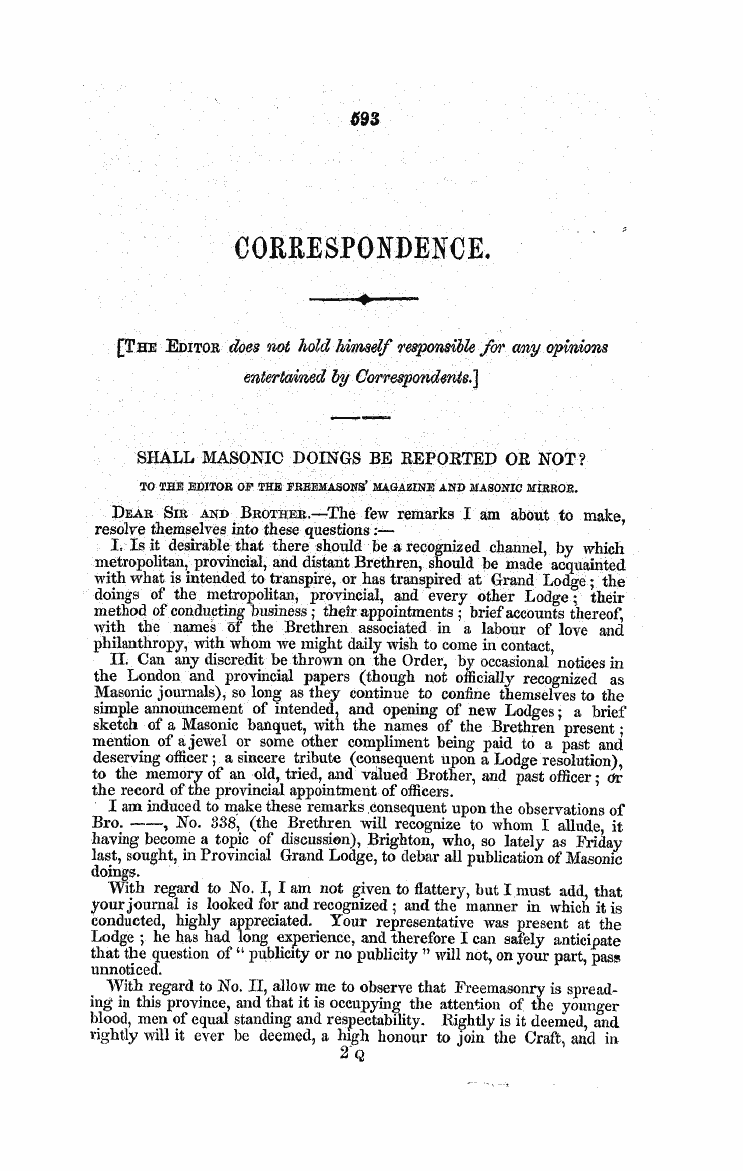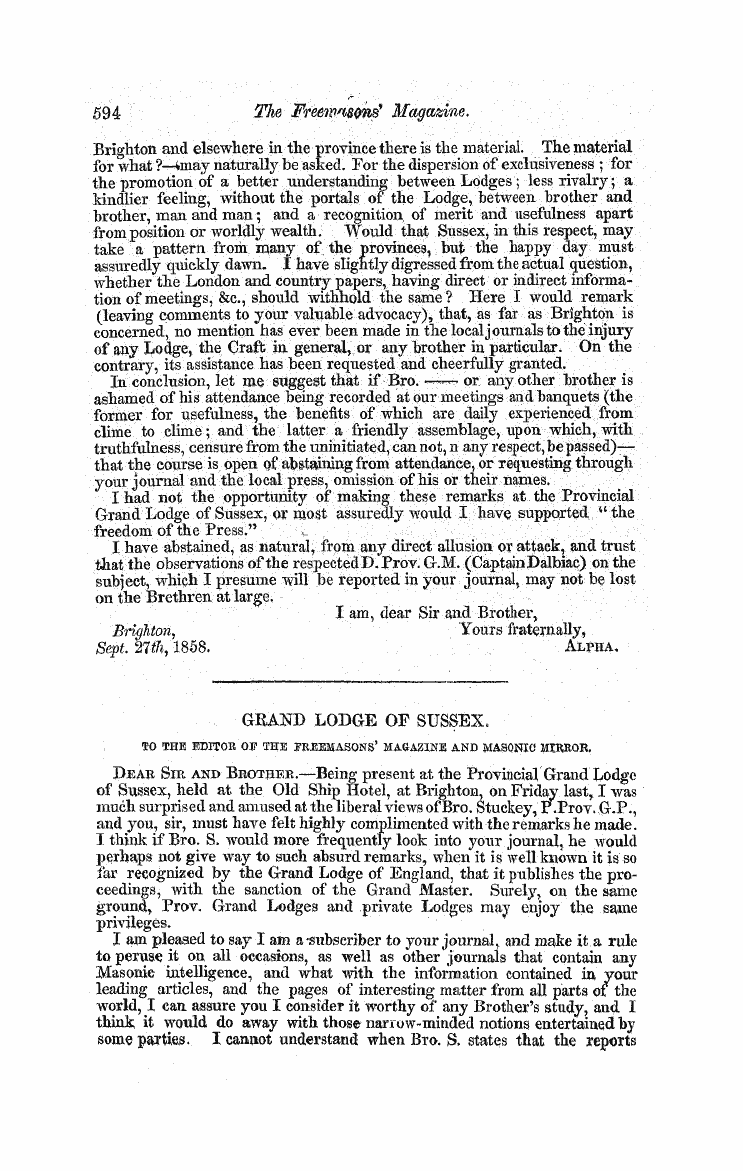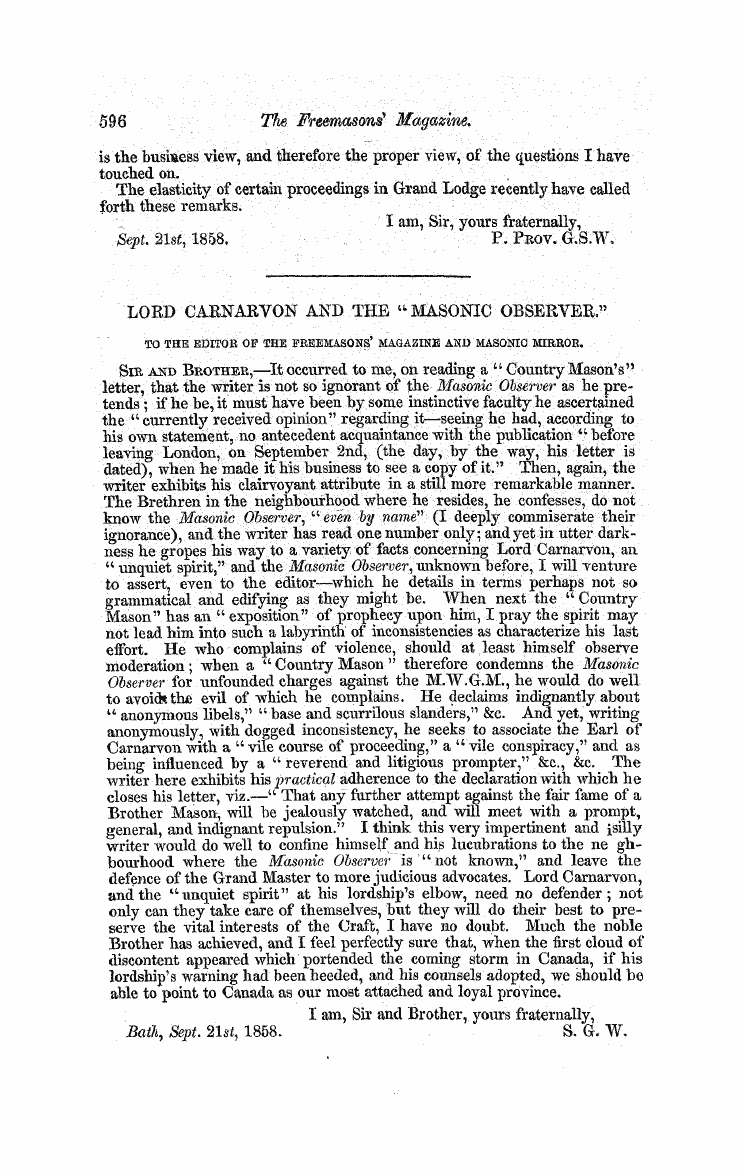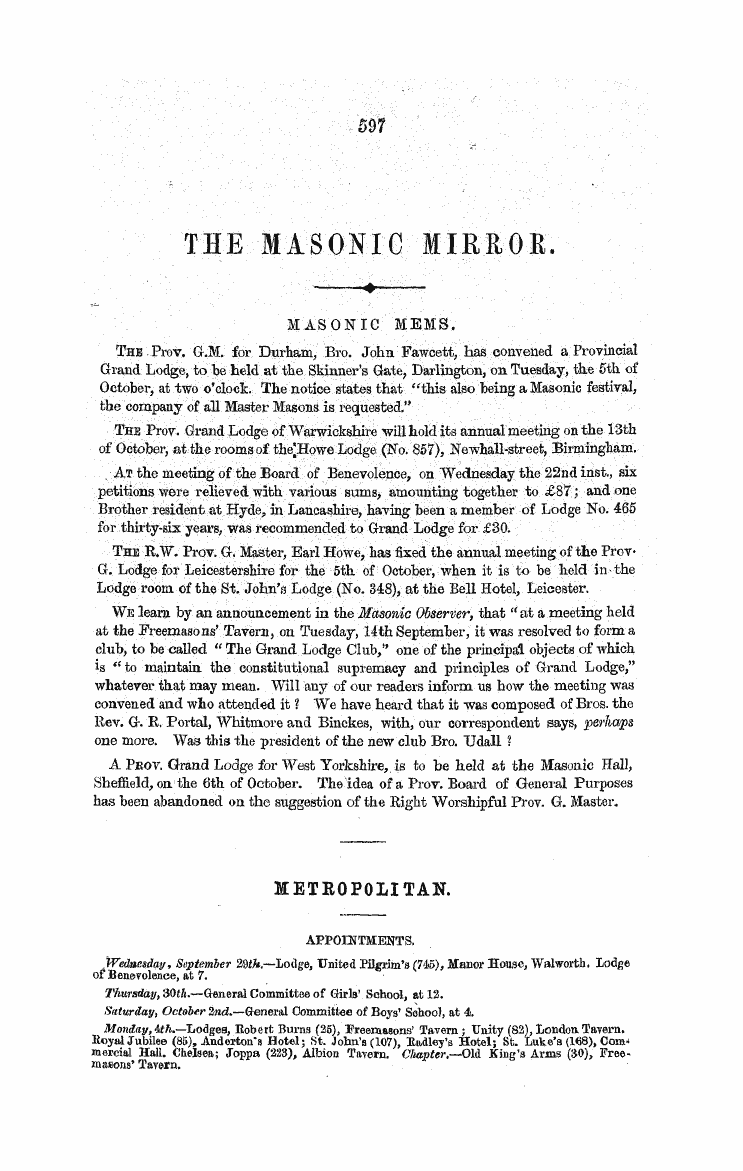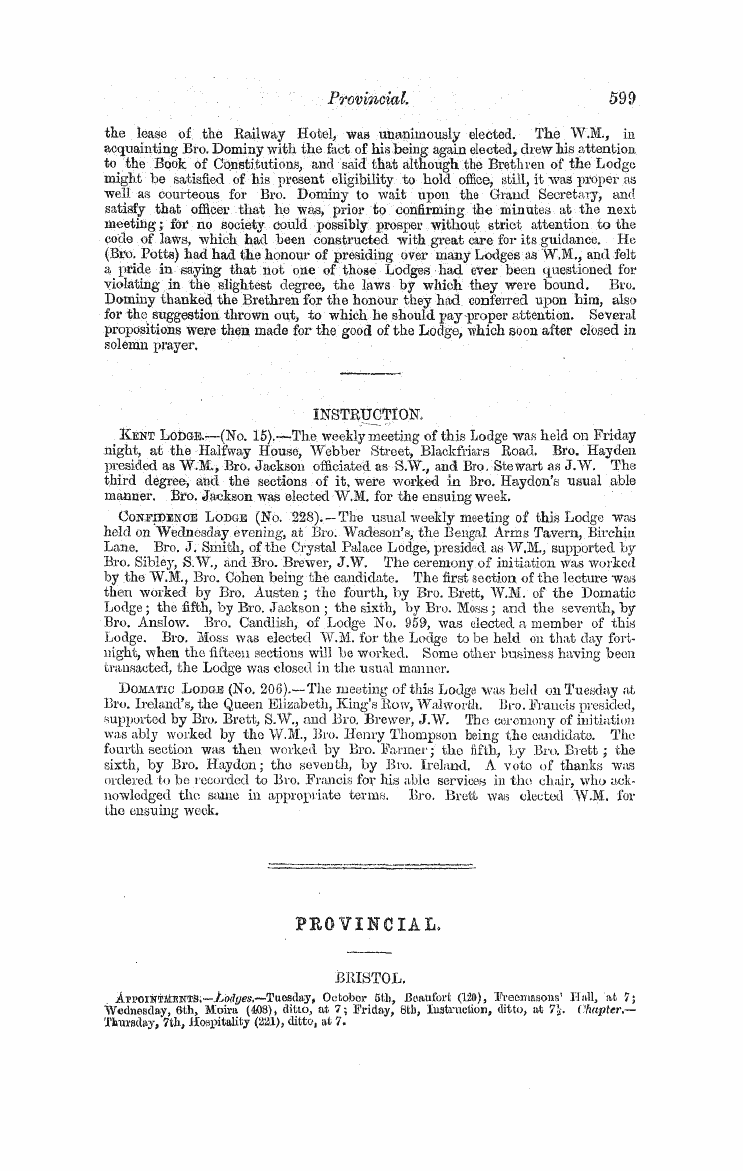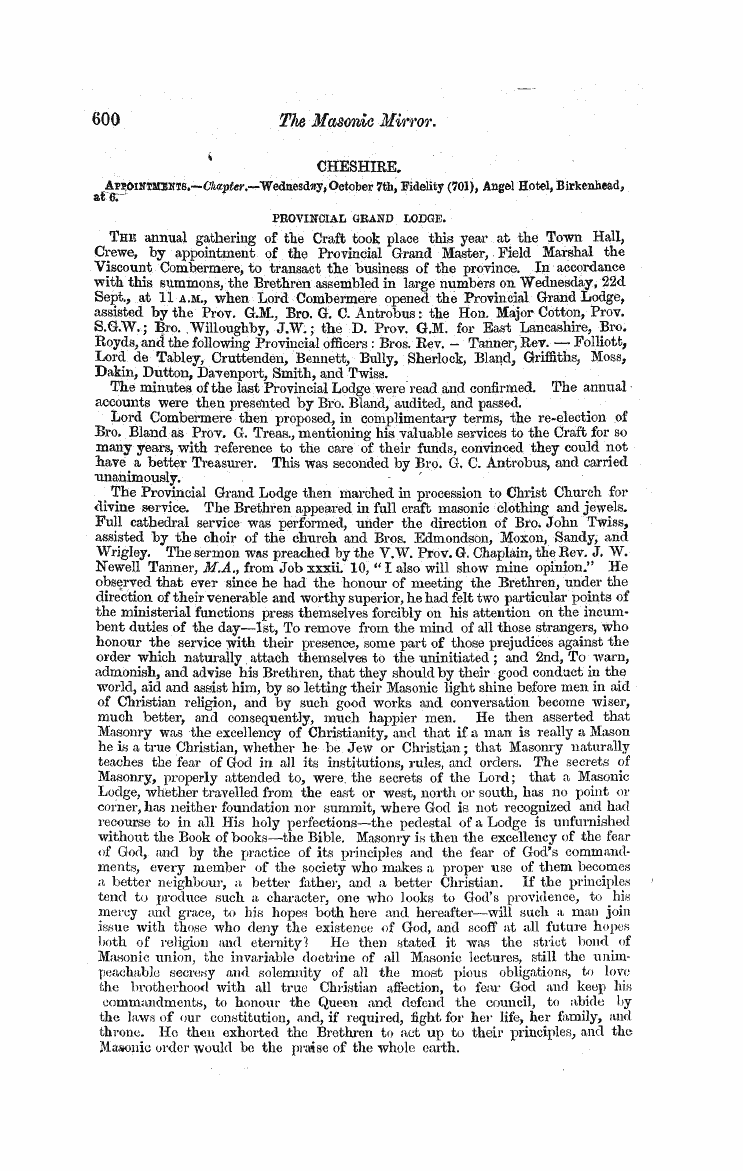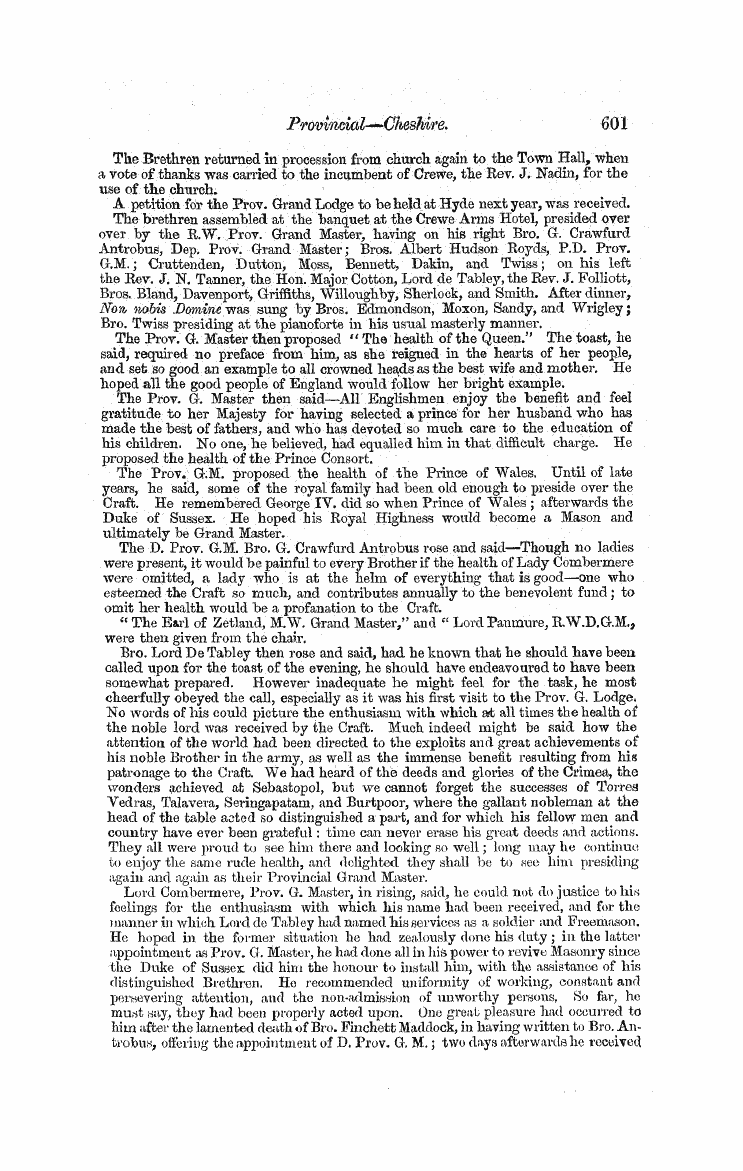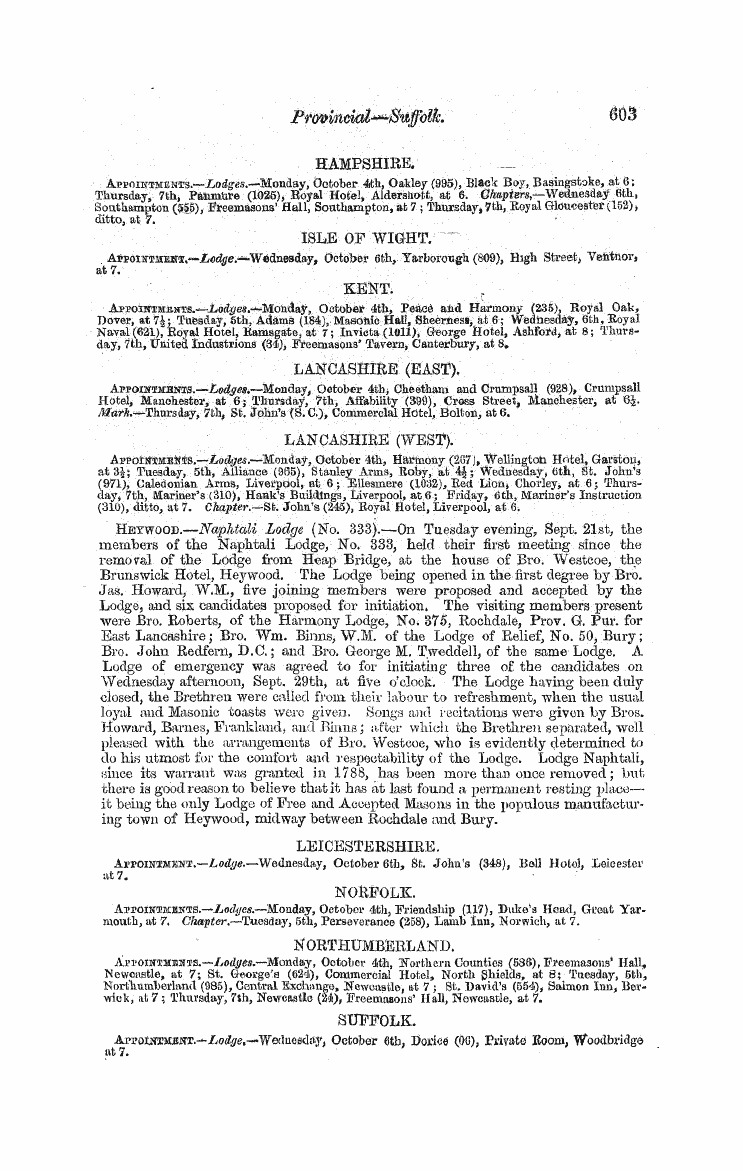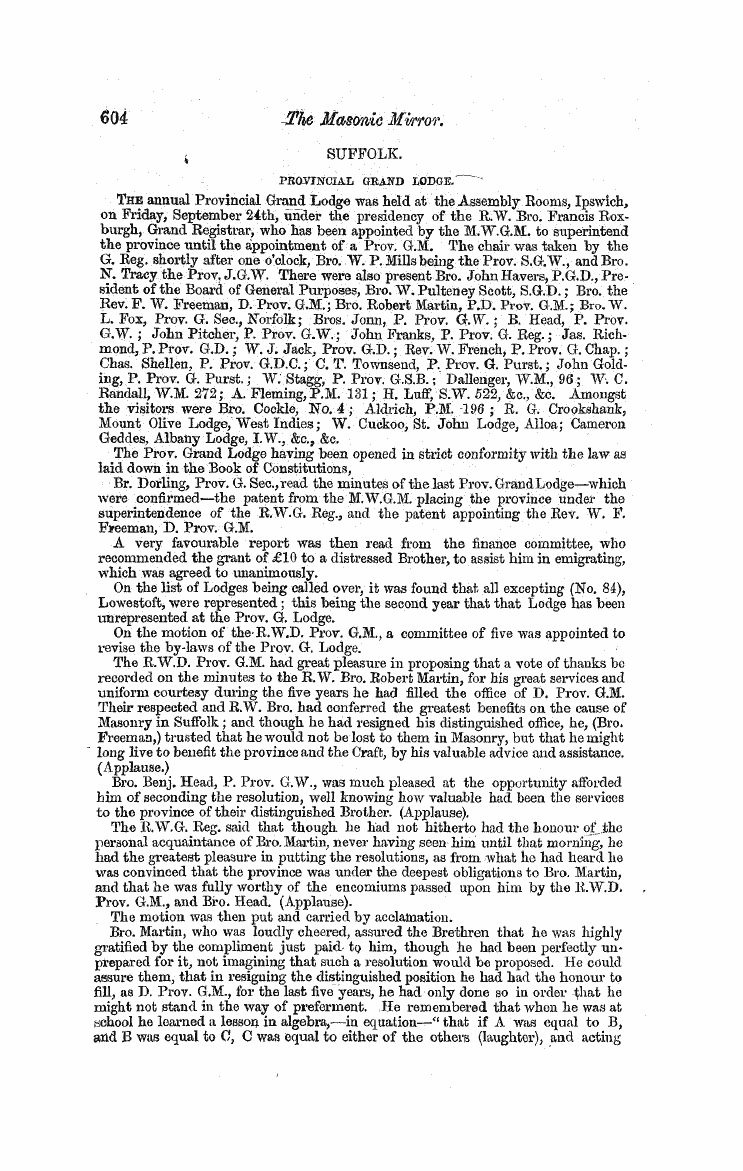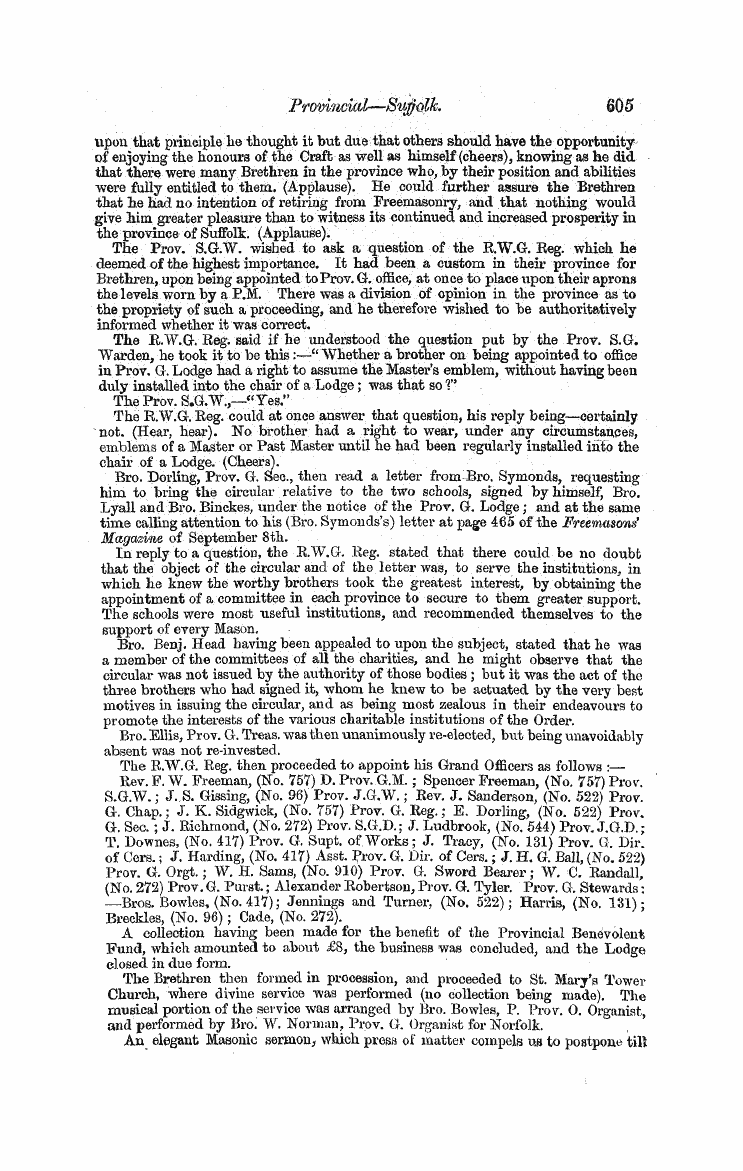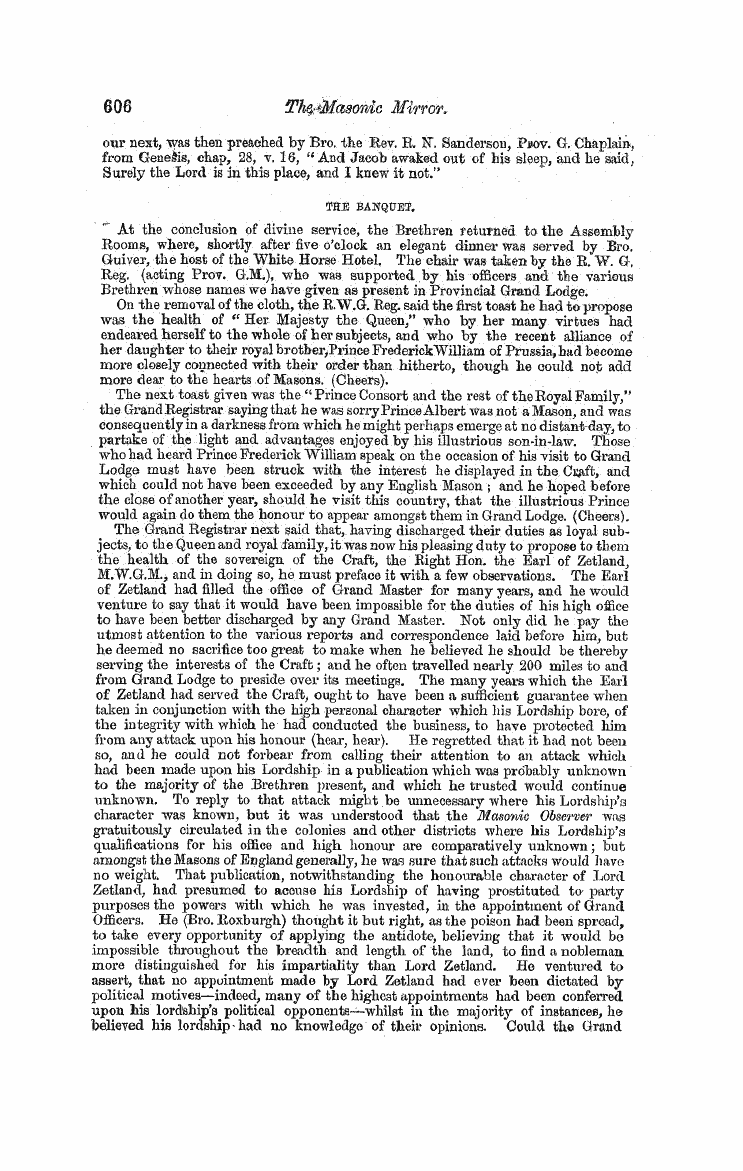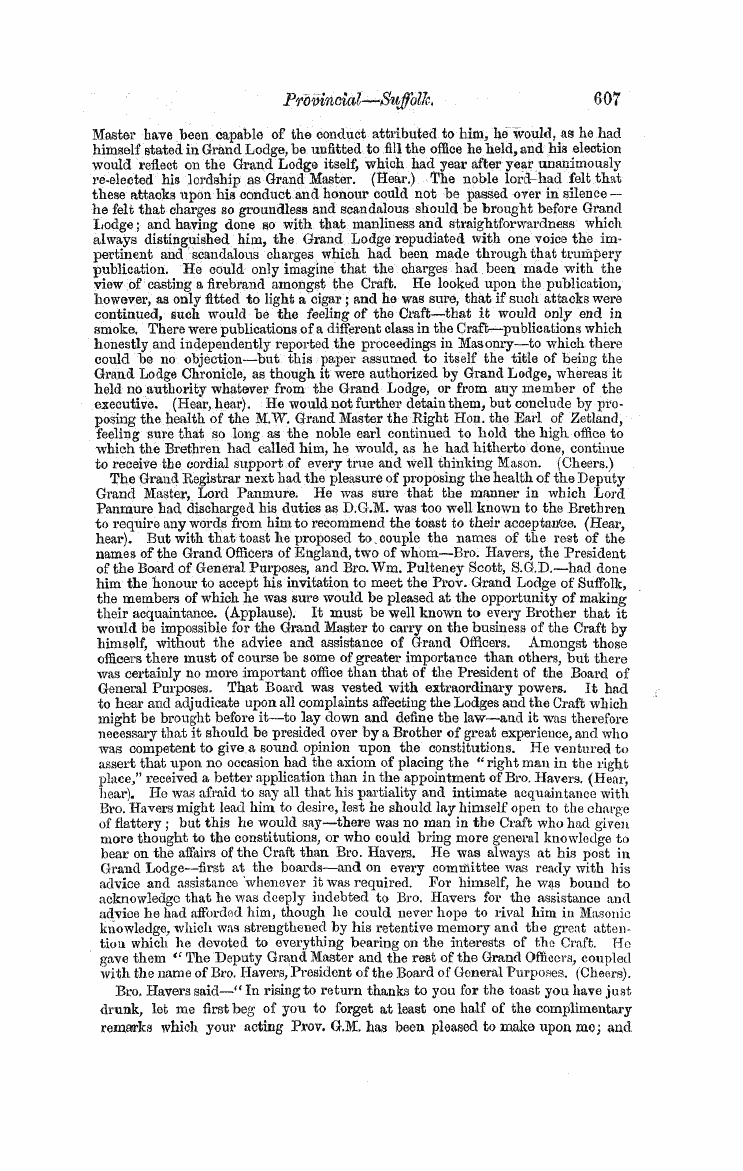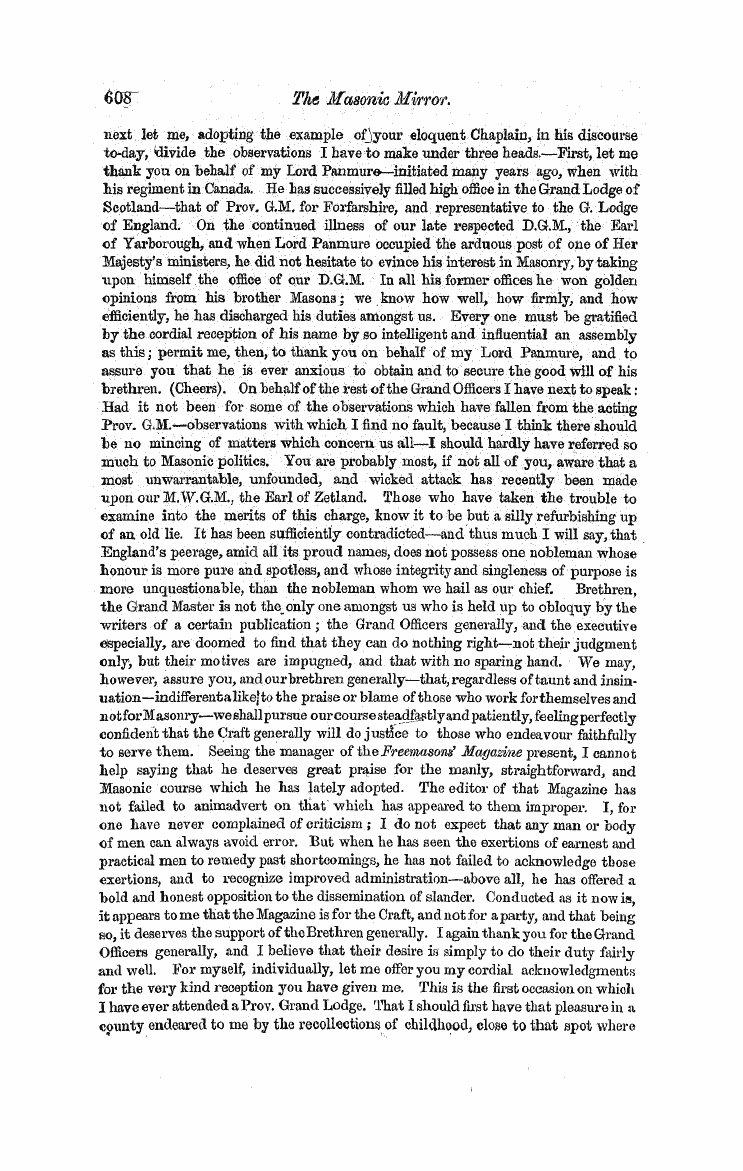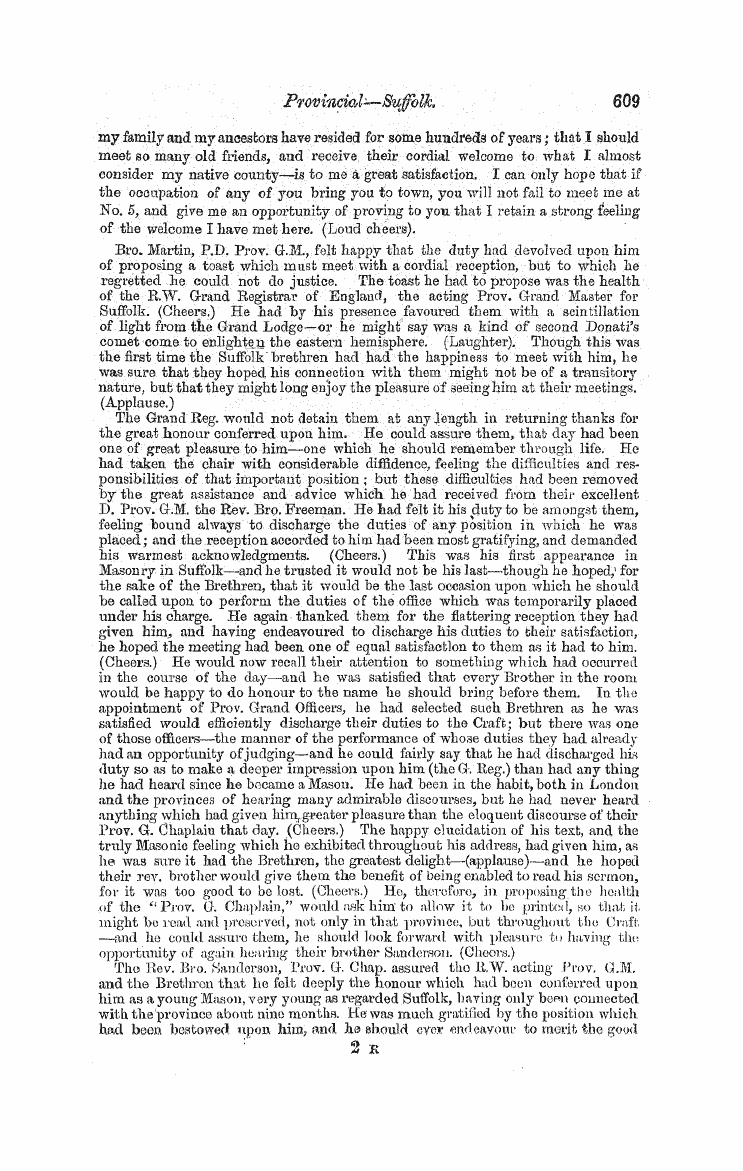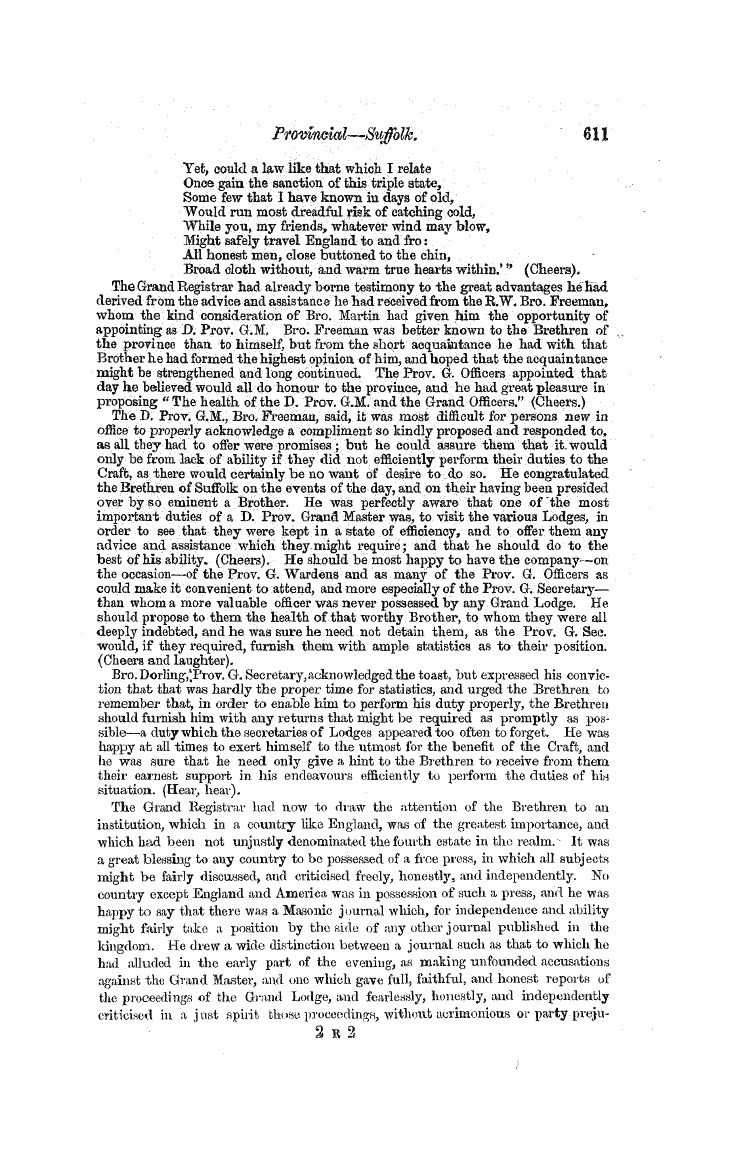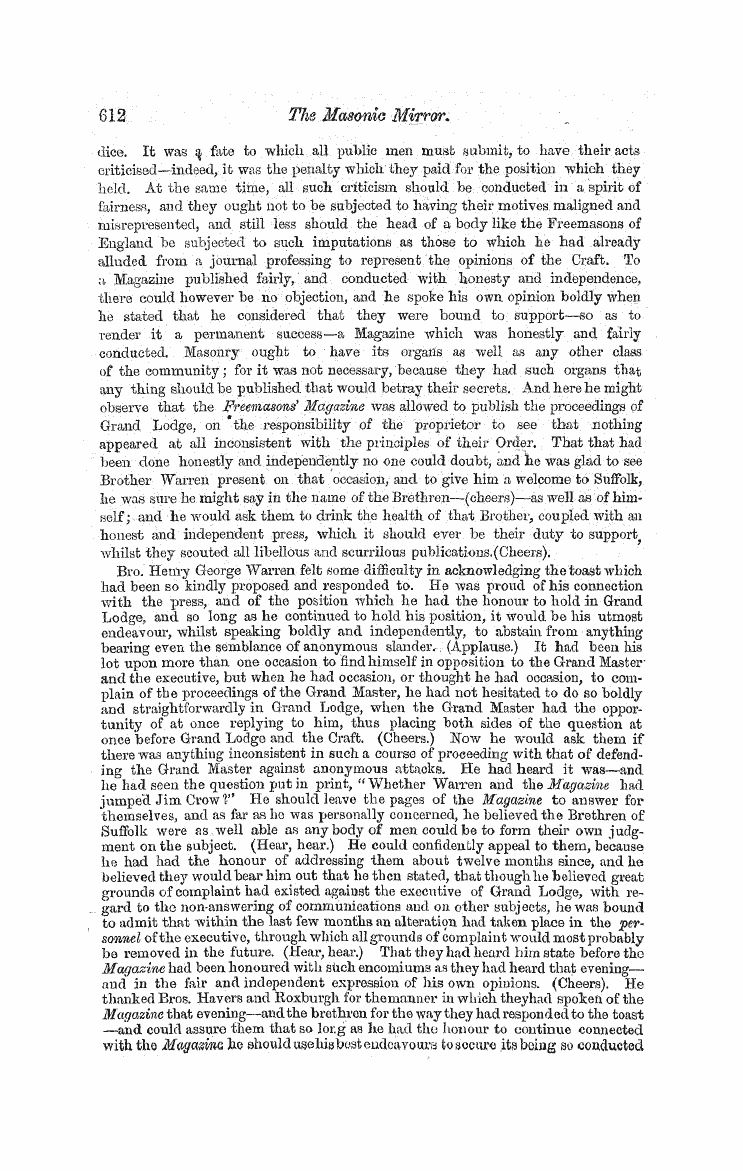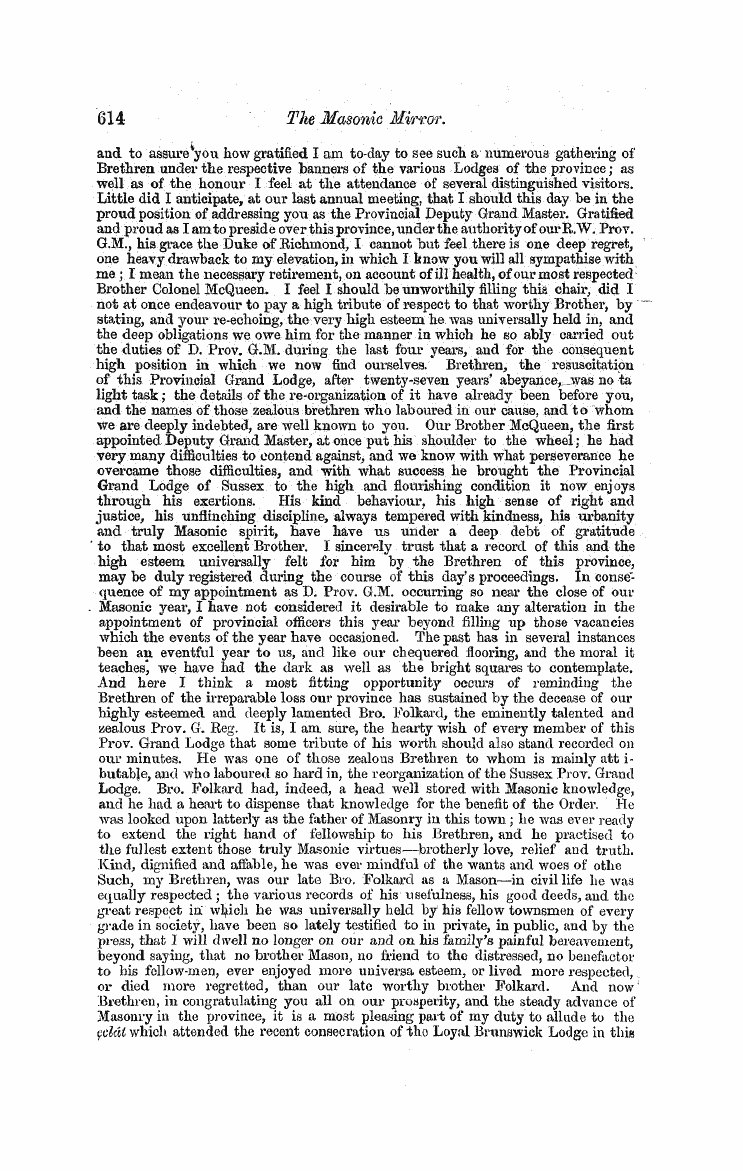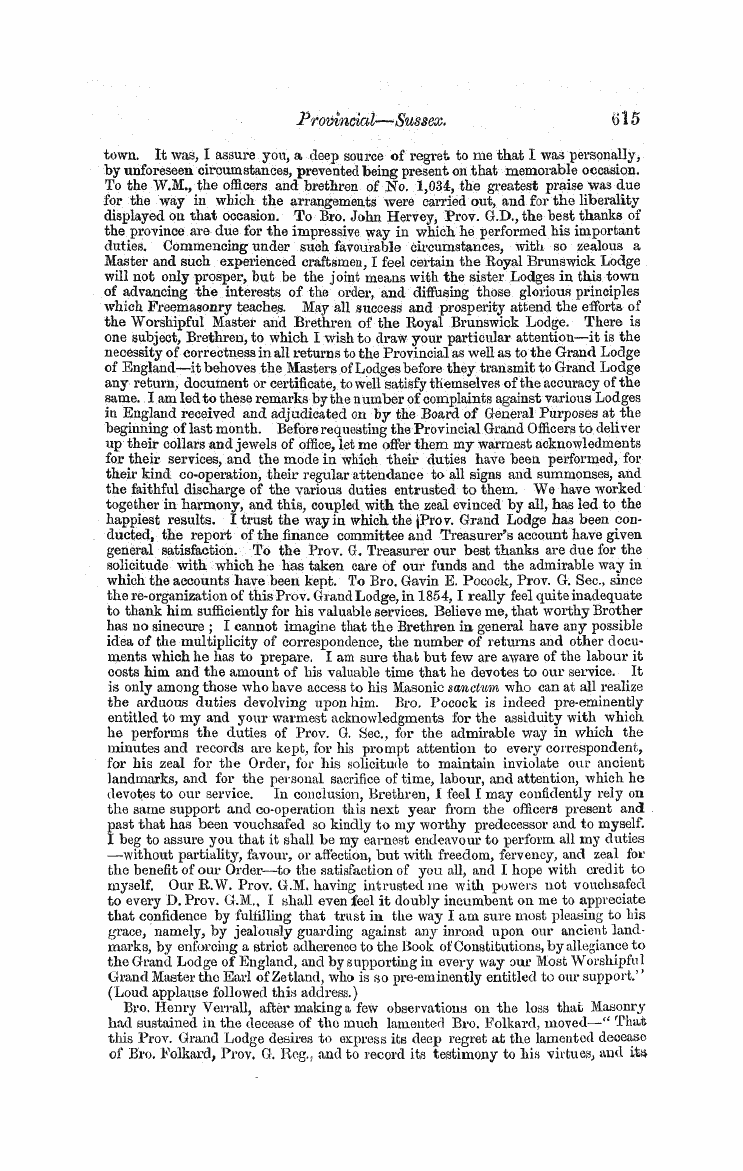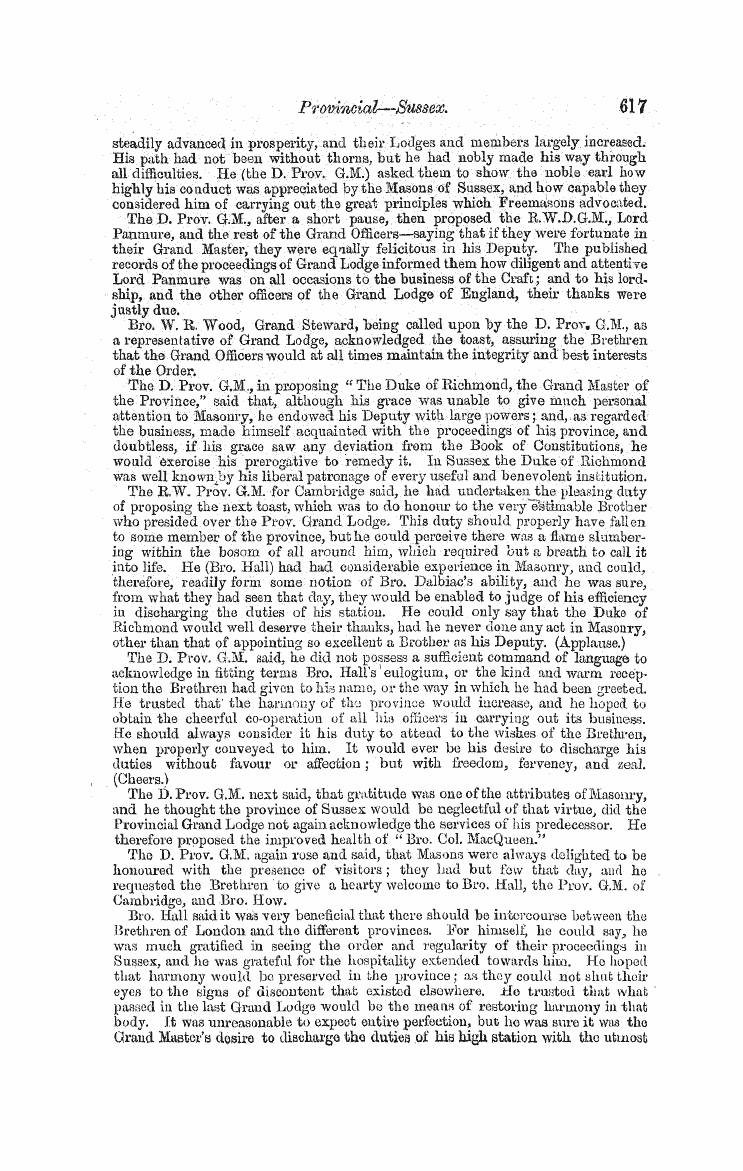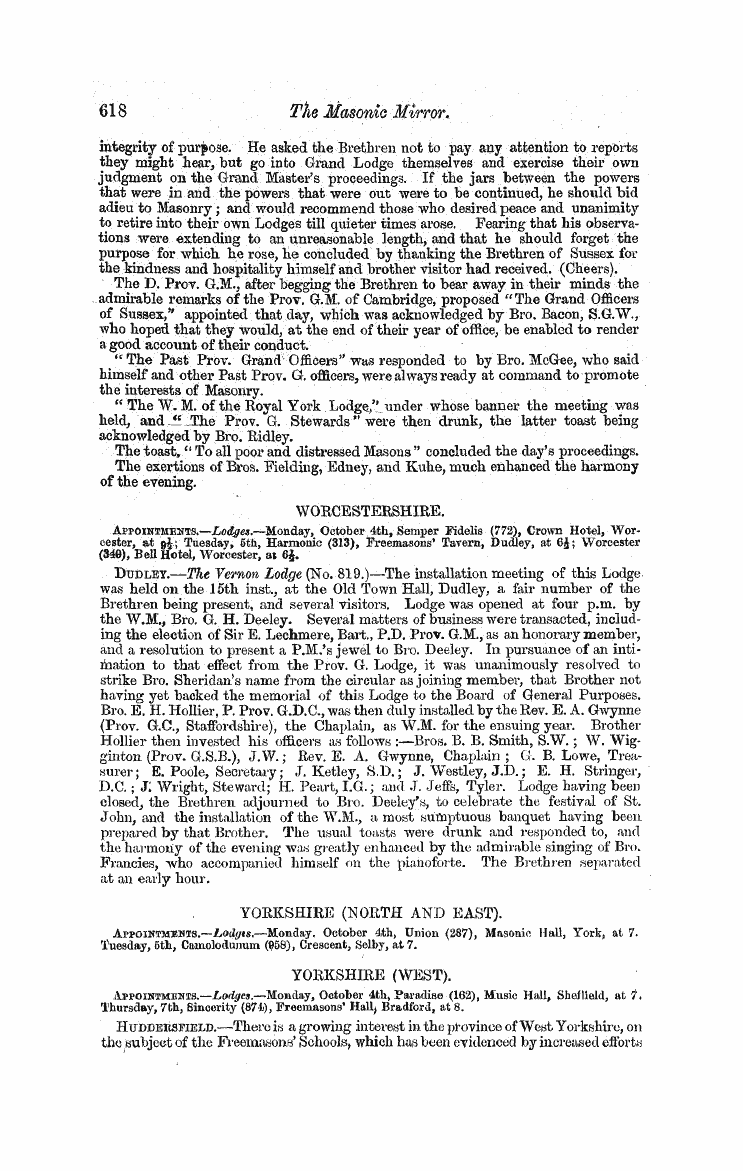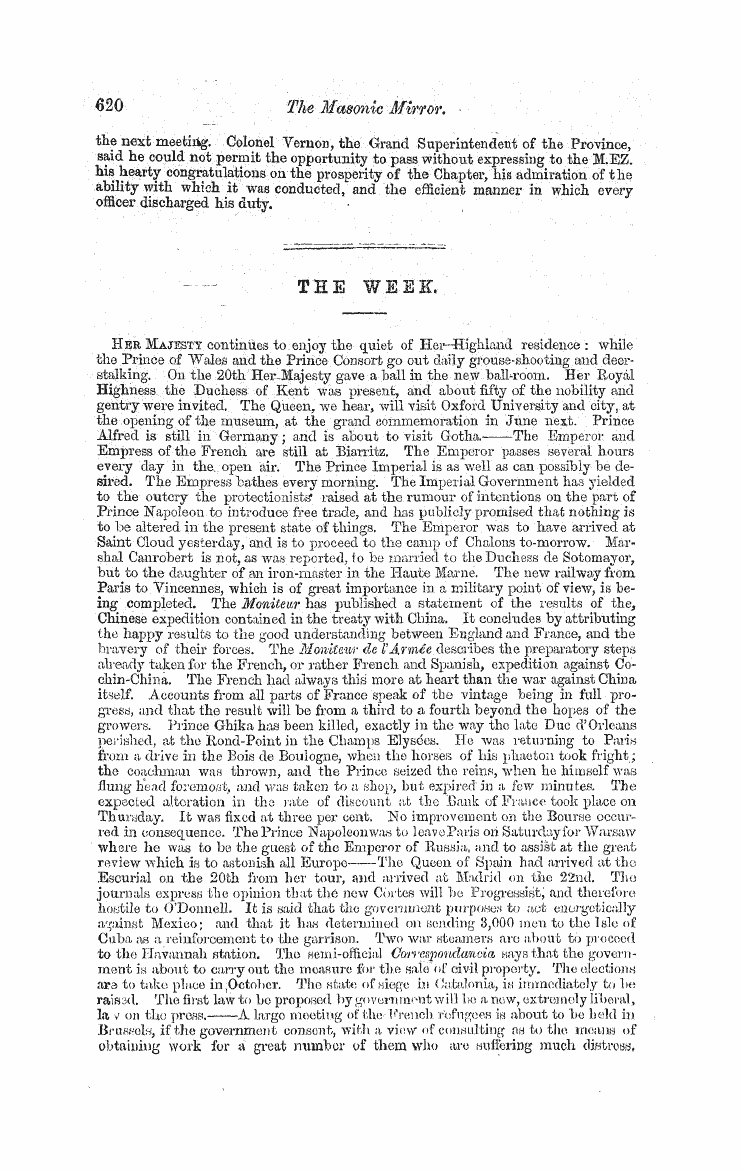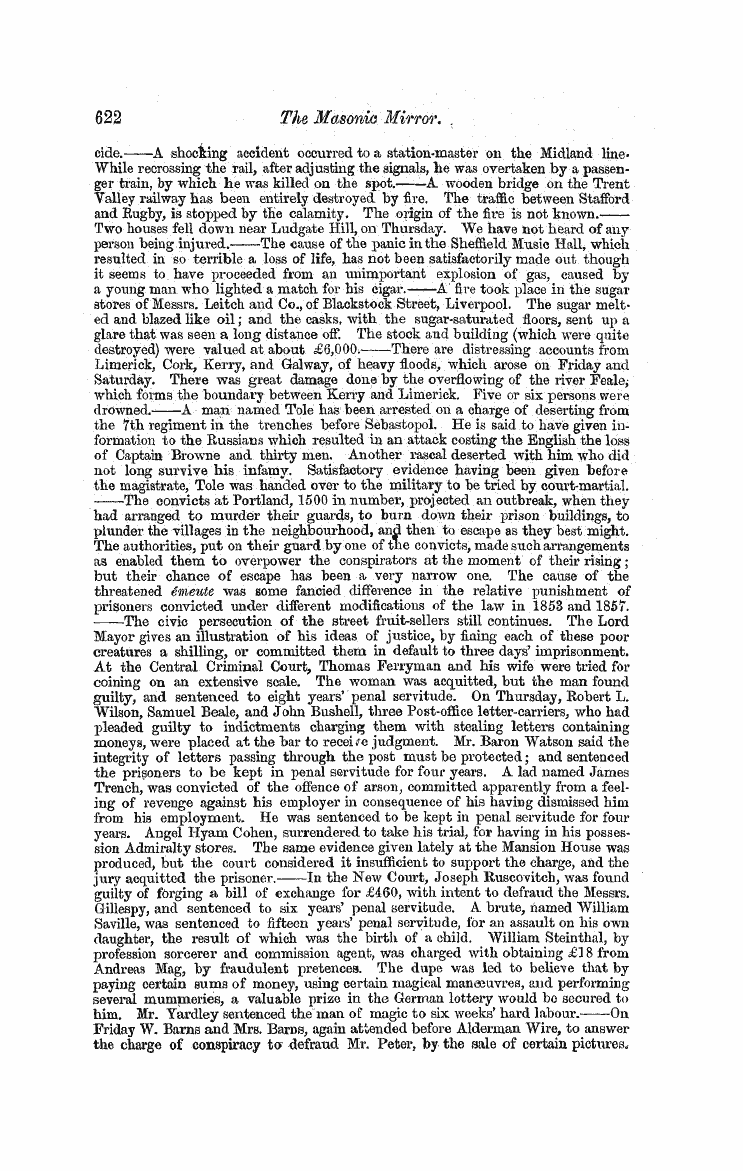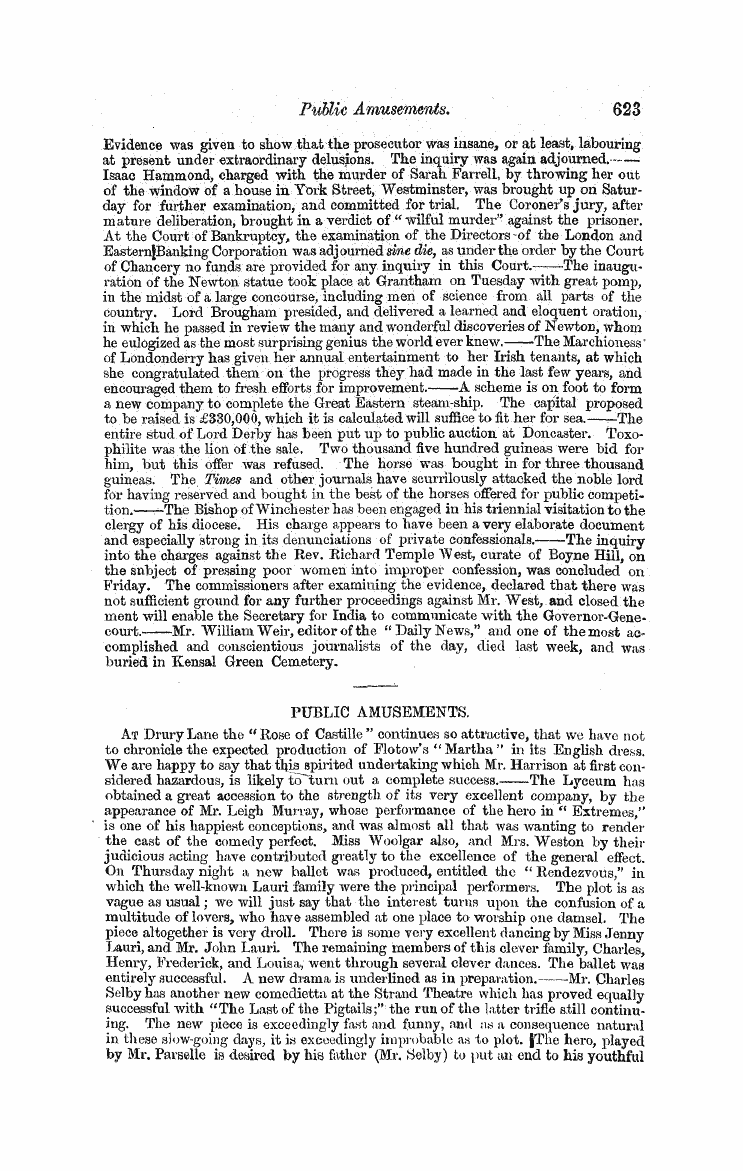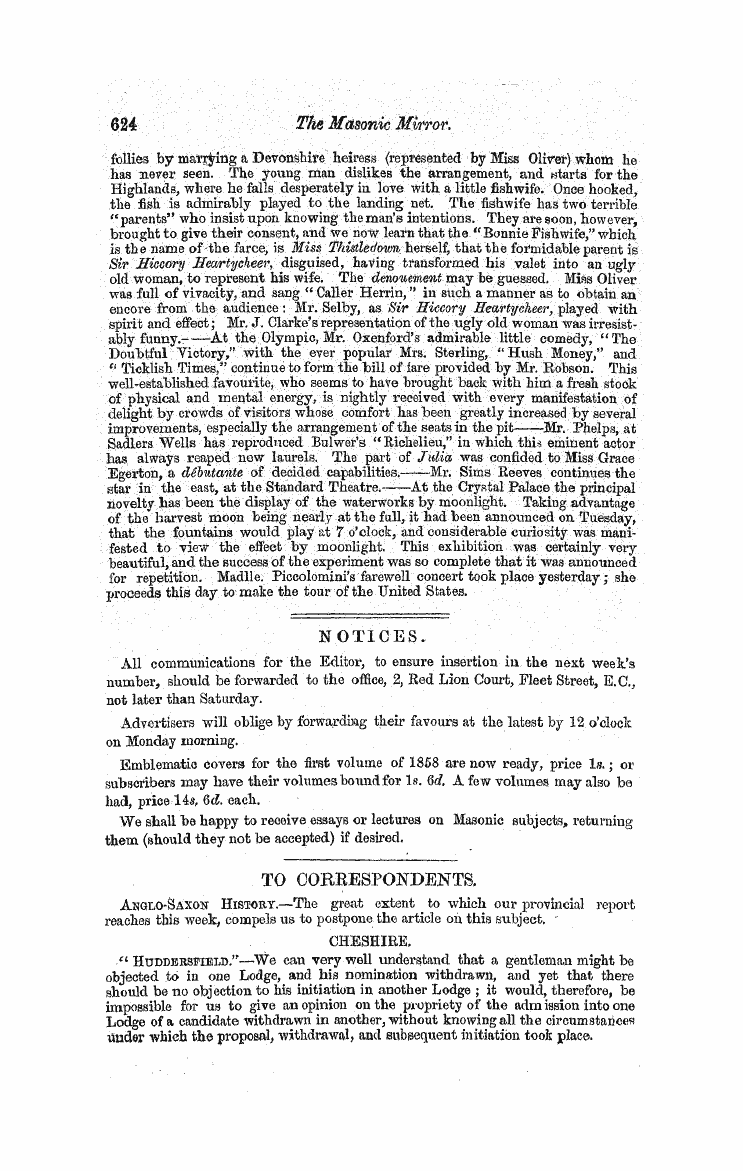-
Articles/Ads
Article THE SEGEEt SOOIEfM ← Page 9 of 10 →
Note: This text has been automatically extracted via Optical Character Recognition (OCR) software.
The Segeet Sooiefm
iEneas Sylvius and oth ^ liistorians inform us that no one was ever known to beiguflty of violating his trusts Returning , however , from this digression to the subject of the Vehmique citation ; if the person who was summoned had met with an asylum in a fortified castle * the citator went to the neighbourhood of the
fortress ^ either by night or by day , on foot or oh horseback , and cutting out three slips from a woodenrailor post , inserted in the incision a coin and the writ of citation . Keeping theiliree slips , as a memorM that he had executed his commission , he called out to theTporter , to inform the man who had taken refuge within , that he was summoned , and would find the writ of citation inserted in the rail . If the accused
could nowhere be found , the assessors proclaimed him guilty towards the four quarters of the world . T ^ aft er three summonses , the accused did not appear , the judge declared that he would proceed against him as contumacious , and would pronounce sentence on a
certain day . On the appointed day the judge pronounced the name of the accused four times , a ^ id commanded h iin to attend , and answer to the charges brought against him . I £ after these summonses , the accused did not make his appearance , the judge proceeded to pronounce sentence in the following terms ;—
" In the name of the supreme law which was sanctioned by the emperor Charlemagne and confirmed by his holiness Pope Leo , and which princes , counts , nobles , * and free men in the Saxon land , have sworn to observe , I cast this man who is accused before us this day from the highest to the lowest degree ; I deprive him of all privileges , liberties , rights , and immunities I subject him to the ban of the holy Vehm , to hatred , to execration , to hostility , and to the greatest possible punishment which can be
conceived by man . I render him incapable of all law and pardon—achloe s , reduces ^ segeloes , icedeloes . And lastly , according to the laws and regulations of this tribunal , I condemn him to death : his fiefs and estates , if he have any , I declare to be confiscated : I pronounce his wife a widow , and his children , orphans : his neck I adjudge to the halter , his body I consign to birds of prey , to be consumed in the air ; ancl his soul , I commend to God , if he will receive it . "
Having pronounced these words , the judge threw a halter , or a branch of willow twisted , beyond the place of judgment ; and the assessors spat , as if on the delinquent , and confirmed the sentence , copies of which were then forwarded to all the other Yehmique tribunals , with authority to hang up the offender , wherever he might be found , without further ceremony , on the nearest tree .
Should the accused appear , however , at the tribunal , a coil of ropes and a naked sword , the well known emblems of Vehmique authority having been deposited on the altar , the judge or free count rose , and solemnly pronounced the trial oath ( somewhat similar to the one above quoted in its formula , though differing in its provisions ) , which the
* Princes and nobles were anxious to have their chancellors and ministers , and corporate towns to have their magistrates , among the number of the initiated . Many princes , also , sought to be themselves initiated into this formidable association . .
Note: This text has been automatically extracted via Optical Character Recognition (OCR) software.
The Segeet Sooiefm
iEneas Sylvius and oth ^ liistorians inform us that no one was ever known to beiguflty of violating his trusts Returning , however , from this digression to the subject of the Vehmique citation ; if the person who was summoned had met with an asylum in a fortified castle * the citator went to the neighbourhood of the
fortress ^ either by night or by day , on foot or oh horseback , and cutting out three slips from a woodenrailor post , inserted in the incision a coin and the writ of citation . Keeping theiliree slips , as a memorM that he had executed his commission , he called out to theTporter , to inform the man who had taken refuge within , that he was summoned , and would find the writ of citation inserted in the rail . If the accused
could nowhere be found , the assessors proclaimed him guilty towards the four quarters of the world . T ^ aft er three summonses , the accused did not appear , the judge declared that he would proceed against him as contumacious , and would pronounce sentence on a
certain day . On the appointed day the judge pronounced the name of the accused four times , a ^ id commanded h iin to attend , and answer to the charges brought against him . I £ after these summonses , the accused did not make his appearance , the judge proceeded to pronounce sentence in the following terms ;—
" In the name of the supreme law which was sanctioned by the emperor Charlemagne and confirmed by his holiness Pope Leo , and which princes , counts , nobles , * and free men in the Saxon land , have sworn to observe , I cast this man who is accused before us this day from the highest to the lowest degree ; I deprive him of all privileges , liberties , rights , and immunities I subject him to the ban of the holy Vehm , to hatred , to execration , to hostility , and to the greatest possible punishment which can be
conceived by man . I render him incapable of all law and pardon—achloe s , reduces ^ segeloes , icedeloes . And lastly , according to the laws and regulations of this tribunal , I condemn him to death : his fiefs and estates , if he have any , I declare to be confiscated : I pronounce his wife a widow , and his children , orphans : his neck I adjudge to the halter , his body I consign to birds of prey , to be consumed in the air ; ancl his soul , I commend to God , if he will receive it . "
Having pronounced these words , the judge threw a halter , or a branch of willow twisted , beyond the place of judgment ; and the assessors spat , as if on the delinquent , and confirmed the sentence , copies of which were then forwarded to all the other Yehmique tribunals , with authority to hang up the offender , wherever he might be found , without further ceremony , on the nearest tree .
Should the accused appear , however , at the tribunal , a coil of ropes and a naked sword , the well known emblems of Vehmique authority having been deposited on the altar , the judge or free count rose , and solemnly pronounced the trial oath ( somewhat similar to the one above quoted in its formula , though differing in its provisions ) , which the
* Princes and nobles were anxious to have their chancellors and ministers , and corporate towns to have their magistrates , among the number of the initiated . Many princes , also , sought to be themselves initiated into this formidable association . .































































































































































































